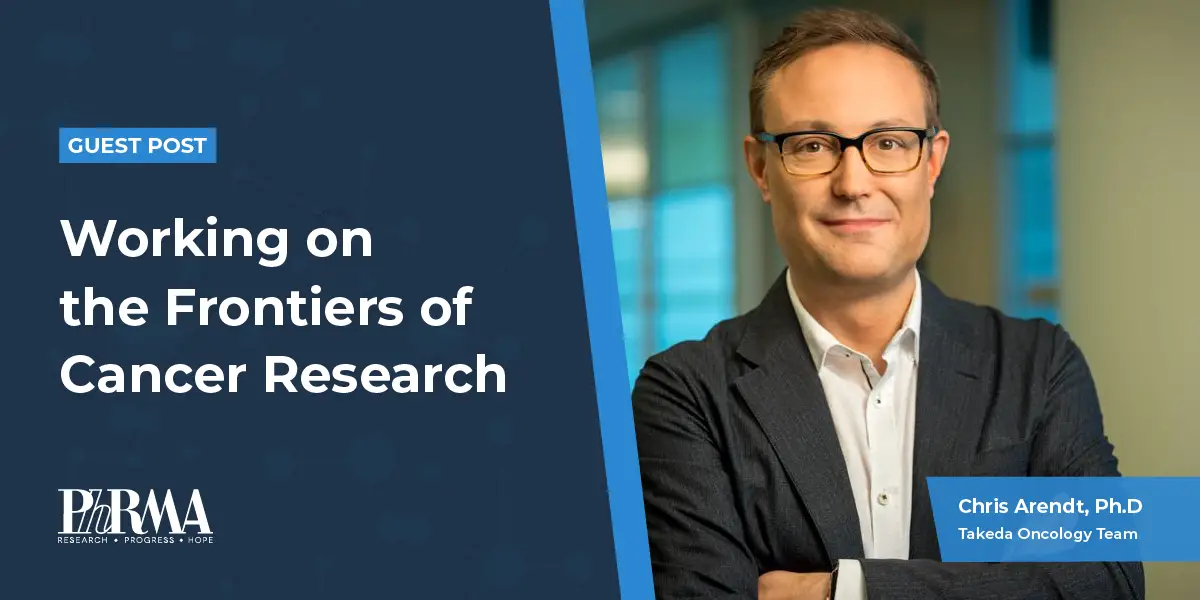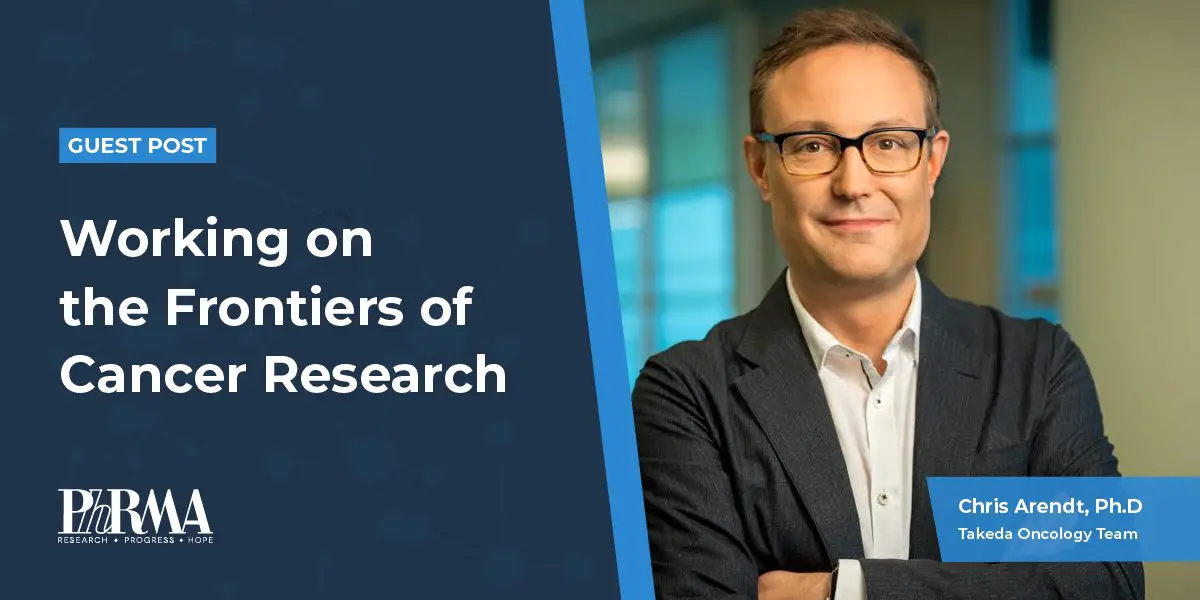
Conversations and healthy debate about issues facing our industry and the health care system are critical to addressing some of today’s challenges and opportunities. The Catalyst welcomes guest contributors, including patients, stakeholders, innovators and others, to share their perspectives and point of view. Today, we are pleased to welcome a guest post from Chris Arendt, Ph.D., a leader of Takeda’s oncology team to discuss how the company is ensuring cancer research and medicines continue to benefit patients in the age of COVID-19.
“The new normal” has been used to describe the challenging and dynamic circumstances we find ourselves navigating during the COVID-19 pandemic. But the definition of “normal” – conforming to an expected standard – has complex connotations in the context of cancer research. For those of us who work at the frontiers of cancer research, the status quo is something we tacitly reject, as we join forces to pioneer the next-step changes to improve outcomes for patients.
The outbreak of COVID-19 represents a significant and urgent threat to global health, and the disruptions it has brought to health care systems and social infrastructure represent collateral challenges for people living with cancer and participating in clinical trials. At Takeda, our corporate values place at the fore what we refer to as “PTRB”: patients, trust, reputation and business. The order of these is significant and represents the commitment of our business to put patients first. We have been working closely with our clinical trial sites globally to implement best practices that allow for trial continuation with appropriate measures for patient safety. Where feasible, we have made every effort to continue providing trial medication to participants through our “direct-to-patient” supply program, which allows clinical trial drugs to be administered in a home or alternative safe setting at the request of a trial participant.
While the COVID-19 pandemic has necessitated pausing or slowing many investigational clinical studies, the intractability of this “new normal” is catalyzing an acceleration of innovative approaches, technologies and regulatory frameworks that have the potential to revolutionize and streamline clinical development for decades to come.
Among these innovations are new approaches that optimize data collection and management. For example, with our clinical trials evaluating mobocertinib – an investigational treatment for patients with metastatic non-small cell lung cancer (NSCLC) with epidermal growth factor receptor (EGFR) exon 20 insertion mutations – we are working with clinical trial sites to enable patients to still participate during the pandemic. To ensure they are receiving clinical trial supply, where appropriate, we are shipping directly to patients so they can continue per protocol their treatment course, as well as offering transportation assistance to study sites. We are also allowing imaging for disease response to be completed at local hospitals instead of pre-existing trial sites to reduce travel during the pandemic. Patients can also complete a quality of life questionnaire electronically. We recognize the critical need to accelerate these practices and introduce them as a new standard across our clinical trials.
Beyond its relevance during the pandemic, patient-reported outcomes (PRO) is an important tool to contextualize data in the real world. Real-world data and PRO are playing increasingly important roles in health care decisions, making it imperative for pharmaceutical companies to acclimate to the changing landscape. Takeda’s INSIGHT MM study is the largest global, prospective, non-interventional observational study on multiple myeloma to date and, with its long follow-up duration, will help inform the optimal sequence of treatments that result in the best outcomes. Because no additional clinic visits are required for this study, Takeda can continue its commitment to enriching outcomes-focused research for the myeloma community.
Though COVID-19 has introduced new complexities and dilemmas, at least in the near term, it has the potential to elevate the status quo for cancer research as we seek to improve our current practices in a patient-centric manner. To accomplish this goal, we are embracing the full spectrum of resources at our disposal, including using new and existing technologies to improve patient care for the better, while working to optimize trial design and reporting measures. By participating in robust scientific exchange at virtual congresses, as well as engaging with regulatory agencies, we have the opportunity to exchange and implement new practices.
Only by stepping outside the comforts of convention and courageously adapting to an uncertain future can we help usher in a new era of cancer research in which continuous innovation and fluidity are inextricably “normal.”
